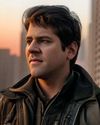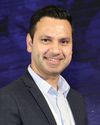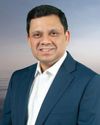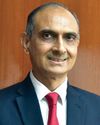
What would the first programmable quantum sensor translate into? Recently, researchers at the University of Innsbruck, Austria designed the first programmable quantum sensor, and tested it in the laboratory. They applied techniques from quantum information processing to a measurement problem. It is a leap that promises quantum sensors whose precision can inch very close to the limit set by the laws of nature. While it has been perceived that atomic clocks could run even more accurately by exploiting quantum mechanical entanglement, there seems to be a void when it comes to realizing robust entanglement for such applications. Is this where tailor-made entanglement can be precisely tuned to real-world requirements? What big leap does the research done by Peter Zoller’s group (at the Institute of Quantum Optics and Quantum Information at the Austrian Academy of Sciences in Innsbruck) give a nudge for? What else can these research initiatives do to leverage the potential of quantum sensors? Dr. Christian Marciniak, Department of Experimental Physics, University of Innsbruck helps us to unlock some questions around these emerging, but powerful, species called Quantum Sensors.
Tell us something about 'quantum entanglement' as a concept. How best can it be exploited for real-world applications? Any scenarios where it would work well?
Entanglement is a property that quantum systems can exhibit. Mass is also a property of quantum systems (as well as classical). What I can say is that, entanglement does not have a classical analogue and it is far more elusive in as much that it is only emergent as an observable property in well-controlled environments. Entanglement is, however, ubiquitous (just like mass is), though not every occurrence is what we would call useful.
この記事は DataQuest の May 2022 版に掲載されています。
7 日間の Magzter GOLD 無料トライアルを開始して、何千もの厳選されたプレミアム ストーリー、9,000 以上の雑誌や新聞にアクセスしてください。
すでに購読者です ? サインイン
この記事は DataQuest の May 2022 版に掲載されています。
7 日間の Magzter GOLD 無料トライアルを開始して、何千もの厳選されたプレミアム ストーリー、9,000 以上の雑誌や新聞にアクセスしてください。
すでに購読者です? サインイン

Data center trends 2025: Innovation in powering and cooling AI racks, managing energy consumption
Vertiv anticipates increased innovation and integration for high-density computing, regulatory scrutiny around AI, focus on sustainability and cyber security efforts.

The Switzerland of Data and AI a weather-check
It is both remarkable and challenging when crucial R&D work - with global connotations- starts happening in Indian labs. An example- from a Cloud and AI player.

Prioritizing the Impossible: How Genpact's SOC Tackles Cyber Threats
Genpact's Vice President of Global Information Security, Faizul Mufti, discusses the company's multi-layered approach to cybersecurity. By prioritizing incident response, leveraging threat intelligence, and fostering a culture of security, Genpact aims to stay ahead of evolving cyber threats and protect its sensitive data.

Connected, Protected and Sustainable: Cisco's Vision for the Network of Tomorrow
As organizations face the demands of hybrid work, multi-cloud environments, and sustainable IT, networking is no longer just an infrastructure component― it's the backbone of digital transformation. In this exclusive conversation, Brink Sanders, Vice President of Global Networking Sales at Cisco, discusses how Cisco is helping enterprises navigate these challenges with forwardthinking solutions that blend innovation, security, and adaptability.

Multi-Cloud Mastery: Lessons from a CIO on Choosing the Right Cloud for the Job
In an exclusive interview, Prosenjit Sengupta, Group Chief Digital and Information Officer (CDIO), shares insights on ITC's cloud journey, discussing the challenges, benefits, and best practices of leveraging Azure, AWS, and Google Cloud.

Secure and Simplify SD-Branch Networks
Secure and seamless branch network management is critical in today's IoT-driven, cloud-centric world. A unified SD-Branch solution offers the much-needed convergence of networking and security to tackle modern-day challenges.

Is Your Multi-Cloud Environment Zero-Trust Ready?
Tony Velleca, CEO of CyberProof, a UST company, shared his insights on the challenges of implementing zero-trust security in multi-cloud environments. As organizations navigate the complexities of managing multiple cloud providers, Velleca emphasized the importance of achieving unified visibility, policy enforcement, and continuous monitoring to protect sensitive data and prevent cyber threats.

The Toxic Cloud Trilogy
As Indian organisations increasingly migrate to the cloud, they face a complex and evolving security landscape. Ari Eitan, Director of Research at Tenable, highlights the \"Toxic Cloud Trilogy\" - a convergence of publicly exposed workloads, critical vulnerabilities, and over-privileged identities - as a critical threat to Indian organisations. In this interview, Eitan discusses the unique vulnerabilities of cloud environments, systemic issues preventing organisations from fully addressing weaknesses and practical steps Indian organisations can take to mitigate these risks.

Networking Redefined: The Cisco Vision for a Connected Future
At the sidelines of Cisco Live 2024 in Melbourne, Raymond Janse van Rensburg, Vice President of Networking and Solutions Engineering for APJC at Cisco, engaged in an insightful conversation with Minu Sirsalewala, Executive Editor of Dataquest. During the interaction, he shared about the transformative trends shaping the networking and communication landscape. From AI-driven automation to the evolving dynamics of IoT, Cisco's strategies aim to redefine enterprise connectivity, security, and operational resilience.

HPCL's AI Evolution: From Generative Models to Secure Cloud Integration
Jayant Gupta, Executive Director of Information Systems at Hindustan Petroleum Corporation Limited (HPCL), shares insights on the company's strategic approach to leveraging generative AI, managing hybrid cloud environments, and staying ahead of advancements in emerging technologies.